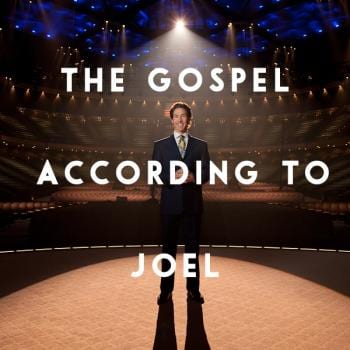“A Survey of Glossolalia and Related Phenomena in Non-Christian Religions”
 “What Happens to Your Brain When You Stop Believing in God [CLICK BANNER FOR LINK TO POST]?”
“What Happens to Your Brain When You Stop Believing in God [CLICK BANNER FOR LINK TO POST]?”In an older study, L. Carlyle May of Harvard University, in his 1956 work “A Survey of Glossolalia and Related Phenomena in Non-Christian Religions,” found that “The ecstatic utterances of modern day tongue-speakers are regularly manifested among Buddhists, Hindus, Mormons, Moslems, Shintoists, Spirits, and voodoo devotees…”
But, what I found most interesting in this research was Carlyle highlighting the findings that “Tongue-speaking has also been reported by those under the influence of LSD…” In other words, Carlyle writes, “The Pentecostal experience is not unique [to just Christianity](1).”
And, these findings weren’t isolated to this study…
But, Is Glossolalia a Learned Behaviour…?
Linguist Felicitas Goodman not just found this “unknown language” to be present within other “non-Christian Religions” her research as published in 1972… but, she took her research a step further and “took into account both the segmental structure (such as sounds, syllables, phrases) and the supra-segmental elements (rhythm, accent, intonation)(2).”
The linguistic data does in face suggest speaking in tongues can be a learned behavior…
“Linguistic data suggests that glossolalia can be a learned behaviour. An experiment conducted by Spanos had participants listen to a recorded sample of genuine glossolalia. After listening to the recording 20% of his subjects were able to speak in tongues immediately without further training. Further, after some coaching, 70% of the trained subjects were fluent in glossolalia. The conclusion to the study was that “Glossolalia, therefore, seems likely to be a type of learned behavior rather than a special altered state of mind(2).”
And, it’s not just the research from Goodman but, in Lutheran Reverend John Kildahl’s research, he came to similar conclusions noting that “the evidence is strong that one may learn to speak in tongues under certain prescribed conditions…(4)”
Goodman goes on to clarify saying that “[Glossolalia] is, actually, a learned behavior, learned either unawarely or, sometimes consciously. Others have previously pointed out that direct instruction is given on how to ‘speak in tongues,’ ie. how to engage in glossolalia… association between trance and glossolalia is now accepted by many researchers as a correct assumption(2).”
Mislabeled as a Mental Illness
Some researchers have gone so far as labeling this phenomenon as a symptom of mental illness.
But, oddly enough the NY Times in 2006 says that “Contrary to what may be a common perception, studies suggest that people who speak in tongues rarely suffer from mental problems. A recent study of nearly 1,000 evangelical Christians in England found that those who engaged in the practice were more emotionally stable than those who did not. Researchers have identified at least two forms of the practice, one ecstatic and frenzied, the other subdued and nearly silent.”
This would be an overgeneralization. Findings across the board are seemingly unanimous in saying that it’s usually not a symptom of mental illness. While some who practice glossolalia might suffer from mental illness there was no apparent correlation between mental instability and glossolalia.
In fact, research actually suggested the opposite effect, as James Bishop writes on his blog that:
“Though glossolalics have been labeled schizophrenic, neurotic, emotionally unstable, dogmatic, among other terms, they seldom actually suffer from mental problems. According to anthropologist Virginia Wine, that theory has jumped ship, “Quite clearly, available evidence requires that an explanation of glossolalia as pathological be discarded”. In support, a 2003 study by Francis and Robbins of close to 1000 evangelical Christians in England found that those who engaged in the practice were more emotionally stable than those who did not, thus challenging the view of those who believe glossolalics suffer from mental illnesses.”
As Luthern Minister John Kildahl adds from a practical and ecclesiological standpoint “Glossolalia research has convinced me that it is a learned behaviour which can bring a sense of power and well-being…”(4)
In other words, it can be disruptive, it can give one a feeling of being free from the boundaries our world has set in place.
Conclusion: Is it Supernatural or…?
Everything is supernatural. But, also, maybe everything can be taken as “conjecture.”
In the words of Friedrich Nietzsche, “There are no facts, only interpretations.”
The very fact that we exist and don’t know why, it’s absurd. Really, if you’ve ever taken a moment to consider life (in general) you know what I’m talking about.
So, personally, I don’t rule out the possibility of this “unknown language” being supernatural.
Unsurprisingly, the studies do not dismiss the possibility of the supernatural; although, there is the aforementioned evidence that strongly suggests this behavior to be learned.
But again, that’s just one man’s interpretation of this research.
What do you think?













